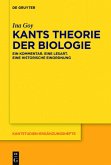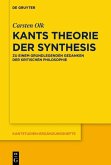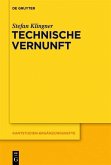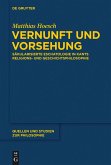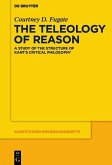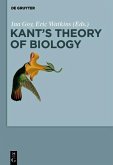Dieser Download kann aus rechtlichen Gründen nur mit Rechnungsadresse in A, B, BG, CY, CZ, D, DK, EW, E, FIN, F, GR, HR, H, IRL, I, LT, L, LR, M, NL, PL, P, R, S, SLO, SK ausgeliefert werden.
Andrew Cooper in: British Journal for the History of Philosophy, 2017, www.tandfonline.com
"Kants Theorie der Biologie (KTB) is a landmark text, providing the first systematic account of Kant's extensive reflections on organized beings. It is comprehensive in scope, displaying a remarkable attention to textual detail while maintaining a systematic view of the critical project."
Andrew Cooper in: British Journal for the History of Philosophy, 2017, www.tandfonline.com



